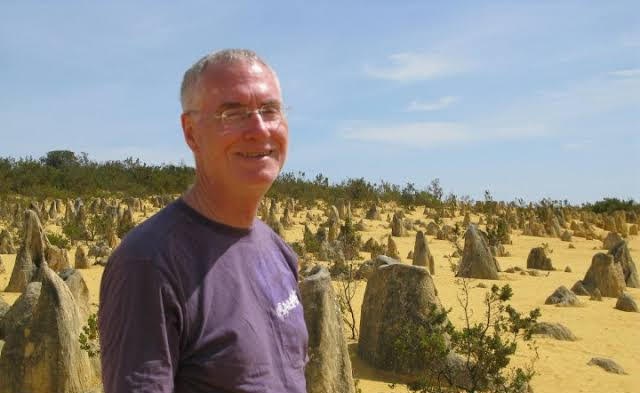It was with great sadness that Solidarity comrades learned that Tom O’Lincoln had died after a long battle with Parkinson’s disease.
Although Tom had been more recently a member of Socialist Alternative, he played a central role in establishing the International Socialist Tendency in Australia.
Tom (born in California on 27 August 1947) came to Australia with his Australian-born then partner, Janey Stone, at the end of 1971 for a visit but ended up staying for the rest of his life.
Both had joined the International Socialists in Berkeley a couple of years previously and brought with them a theory of socialism from below and, importantly, the centrality of anti-oppression politics—the fight against sexism and homophobia—for the socialist movement.
Tom played an important role, joining the Marxist Workers Group (a small group of anti-Stalinist, non-sectarian revolutionaries in Melbourne), which became the Socialist Workers Action Group and then the International Socialists.
Tom was at the centre of developing political discussion in the Marxist Workers Group that meant it became a more coherent organisation that took itself seriously.
He was central to winning the argument for producing a paper (The Battler was first produced by the Socialist Workers Action Group), playing a major role in its content and educating a generation of writers of the importance of clarity and producing readable articles.
The process of political development was still a feature of the group well into the 1970s and Tom was central to initiating debates and developing the politics of the International Socialists, including our understanding of the significance of the settler-colonial foundations of Australia, our attitude to the Labor Party (some IS members were still Labor Party members in the late 1970s), Palestine and the nature of Russia.
Political level
Tom had initially brought a bureaucratic collectivist position (which regarded the Stalinist rulers of Russia as a bureaucratic caste), rather than a state capitalist understanding of Russia, with him from the US. But the discussion certainly raised the political level of the group and set it on a firmer ideological footing.
As important as the political discussions were for the development of the group, Tom also fought (not always successfully) for the group to maintain comradely discussion and a sense of proportion amid often personalised and fractious internal debates.
He was also one of the only leading socialists who could make clear political points and stay within a three-minute speaking time limit for meeting contributions.
Tom was an enthusiastic traveller and had a nose for international political developments. He had been studying in Germany in 1968 and visited Paris in February seeing “the first round of students’ actions of that famous year”.
After his visit to revolutionary Portugal in 1975 he returned with eyewitness accounts of occupied factories and mass demonstrations that provided a young organisation with an inspiring glimpse of the possibilities of workers’ revolution in developed Europe—arguments that provided a counter to the Maoist and Third Worldist arguments that had currency on the Melbourne left at the time.
Tom developed political connections in the Soviet Union as glasnost and perestroika heralded the end of “communism” and strikes and dissident voices appeared in the cracks as the Soviet Union began to crumble.
Similarly, Tom began developing contact with political dissidents in Indonesia well before the fall of Suharto and was visiting Indonesia as Suharto was toppled. His Suaris Socialis (Socialist Voice) project in Indonesian was a very real contribution to international solidarity and developing socialist politics in the Asia-Pacific.
Tom has also left an important legacy in his books including Into the Mainstream, an important analysis of the Communist Party of Australia’s slide into reformism well before it finally dissolved itself in 1991.
His books, Neighbour from Hell and Australia’s Pacific War, written to puncture the myth that Australia is just a lapdog of the US, are more relevant than ever to understand Australian imperialism as the Albanese government rushes to embrace AUKUS and nuclear submarines.
For Tom’s contribution to the International Socialist Tendency in Australia, we owe him a debt of gratitude.
Solidarity extends its condolences and thanks to Janey Stone and Jane Tovey, who have provided extraordinary care and comfort to Tom during his illness.
We extend our sympathy to Tom’s friends and comrades, near and far.
By Ian Rintoul



